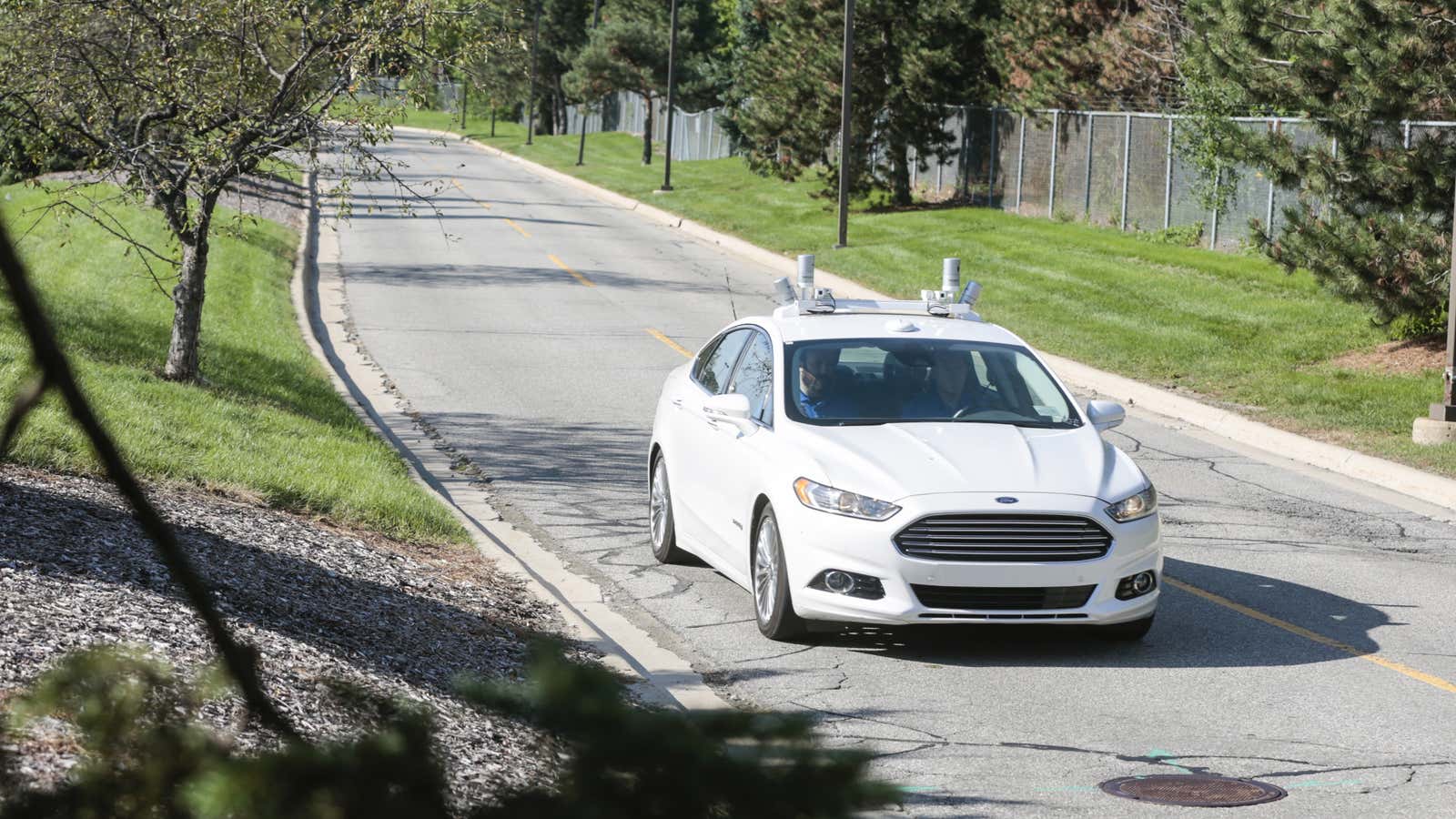At a press conference today, Ford announced that it had replaced CEO Mark Fields with Jim Hackett, director of the company’s autonomous-car research.
Previously the CEO of furniture company Steelcase (and a former athletic director at the University of Michigan), Hackett took a seat on Ford’s board in 2013. He has been running the company’s Smart Mobility subsidiary since March 2016.
Smart Mobility is tasked with securing Ford’s long-term future. The division houses Ford’s self-driving car program, which plans to start ferrying employees around its Dearborn, Michigan campus in 2018. Outgoing CEO Mark Fields previously said that Ford would sell autonomous vehicles to consumers by 2025.
In the press conference, Ford said there was no shift in its investment strategy or timeline for autonomous vehicles, but this is clearly a critical time for developing the technology, as traditional automakers and global tech companies pour billions of dollars into it. And it’s certainly no coincidence that Hackett spent his first year or so overseeing the Smart Mobility division before taking the reins. If Ford isn’t signaling that it’s accelerating its work, it’s indicating that it knows it can’t afford to fall behind if it expects to be around another 100 years. After all, it appointed someone to lead the company to that goal in a timeframe far longer than Fields was ever in the job.
Fields, 56, is retiring after 28 years with Ford. Since he took over as CEO in July 2014, the company’s stock price has dropped 35%, from around $17 to $11. Ford’s yearly revenue only grew about 1.5%, from $149.6 billion to $151.8 billion, from 2015 to 2016, and reports suggest that the company plans to lay off thousands of workers in the coming months.
Under Fields’ direction, the company invested heavily into self-driving cars, dropping $150 million into Velodyne, the company that produces laser-radar Lidar systems that autonomous cars use to see the road. Ford has also pledged to invest $1 billion over 5 years into startup Argo AI, which is building an autonomous-driver system for these cars.
Ford has been working on self-driving cars in some capacity since a Pentagon-sponsored competition in 2005, called the DARPA Grand Challenge, that tasked companies and research facilities with building an autonomous vehicle.
Hackett is expected to continue the push into self-driving cars. “We have to re-energize our business, we need to modernize our business,” executive chairman Bill Ford said about the company’s initiatives into new technologies at the conference. The company’s stock price was up about 1.5%, or $0.15, on the news at the time of publishing.
Hackett has said that he wants to make decisions more quickly and work closely with Bill Ford, who is the great-grandson of the company’s founder. But he has not yet signaled that Ford will start moving faster on self-driving cars and other ongoing mobility initiatives (such as ride-hailing services).
He will face an uphill battle trying to modernize the company. Like other major carmakers, Ford is facing a glut of used cars on the market, which makes it easy for consumers to find affordable recent models instead of buying new cars. There has also been a decline in US auto sales and car loans over the last few quarters, leading Ford and others to scale back production.
